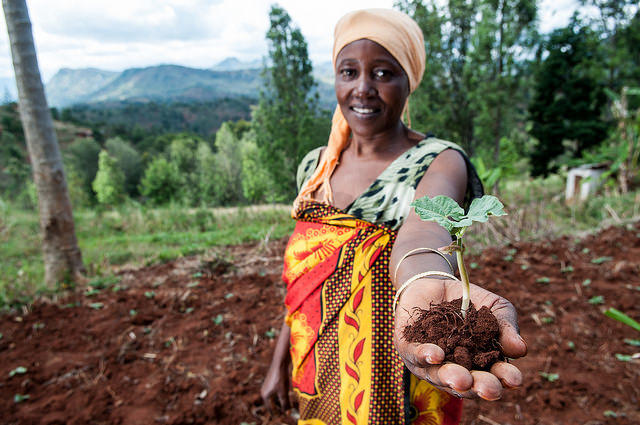Linking people, nature and prosperity to ecosystem services - yes we can!

How are ecosystem services linked to nature, people and prosperity? How can we shift attention from a singular emphasis on yield to healthy rural landscapes that provide multiple ecosystem services to society? In three weeks' time, these and many other urgent topics will be on the annual Ecosystem Services Partnership conference attendees' minds.
How are ecosystem services linked to nature, people and prosperity? How can we shift attention from a singular emphasis on yield to healthy rural landscapes that provide multiple ecosystem services to society? In three weeks' time, these and many other urgent topics will be on the annual Ecosystem Services Partnership conference attendees' minds.
The actions of a community living upstream inevitably affect communities living downstream. Likewise, a degraded ecosystem might have repercussions beyond its immediate area, and the loss of certain ecosystem services might be felt at local, regional or even global scales. In Barotse, Zambia, for example, local communities adapt to the challenges and opportunities of an ever-changing landscape by diversifying their livelihood activities and migrating from the floodplain every year to the upland areas, prior to the floods and back to the floodplain after the water recedes.
During the 'Ignite ecosystem services and poverty alleviation with new approaches' (Session O5 that will take place on Monday, 9 November) Bioversity International's Natalia Estrada-Carmona will "take" the attendees to Zambia and describe the trade-offs and synergies between sustainable food production and other critical ecosystem services for women and men in the changing and dynamic Barotse Floodplain, Zambia.
On Tuesday, 10 November, Bioversity International's Fabrice DeClerck and Sarah Jones, TEEB (The Economics of Ecosystems & Biodiversity), CGIAR, Landscapes for People, Food and Nature Initiative (LPFN) and others will share perspectives on actions and evidence on boosting ecosystem services in rural landscapes (Session B7). This session will feature research tools that have been used to guide decision-making, and highlight cases where communities are actively engaged in integrated landscape management for ecosystem services in rural landscapes. Attendees will be invited to contribute to a community of practice for sharing evidence, experience and methods for putting ecosystems to work for a food secure and sustainable future.
Quantifying - or monetizing - ecosystem services is no easy task. Neither is it easy to put a finger on the exact benefits that ecosystems give to our livelihoods. However, if we do not quantify and link the contributions that ecosystem services make to our well-beings, we risk ignoring them in global decision-making. To address this gap, Nature Capital Project and Bioversity International have developed a decision-support tool called Mapping Ecosystem Services to Human well-being (MESH), which connects production models of ecosystem services to newly developed indicators of human well-being. On Thursday, 12 November, at ESP8's SessionT4a, Bioversity International and Nature Capital Project will unveil MESH and talk about testing MESH in the Volta Basin (Session T5).
After the conference, the Ecosystem Services and Resilience research program (ESR-WLE), Southern African Program on Ecosystem Change and Society (SAPECS) and the Natural Capital Project will host a great training opportunity on ecosystem service modelling. At this unique learning event, attendees will have the chance to discover the new modeling tool MESH, as well as take part in a two-day-long hands-on session where they will use the InVEST and RIOS tools.
Register for the training, learn more here and help us to design the workshop according to your needs and interests by completing this short survey.
Share on social media by using #ESPConf8.
Photo: Sharifa Juma digs terraces to stop soil erosion, Tanzania. Credit: CIAT/G. Smith
